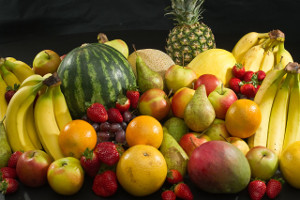 all the food produced in the world is wasted or lost, according to a statement made by the UN's World Resources Institute. In calorific terms, this constitutes nearly a quarter of all food produced. New technology, however, may be capable of prolonging the life of fresh fruit and vegetables to assist in reducing this large amount of waste.
all the food produced in the world is wasted or lost, according to a statement made by the UN's World Resources Institute. In calorific terms, this constitutes nearly a quarter of all food produced. New technology, however, may be capable of prolonging the life of fresh fruit and vegetables to assist in reducing this large amount of waste.Experts have claimed that it is imperative we begin minimising the amount of food that is produced and then lost.
Loss happens when food is spilt in transit or spoilt from heavy bruising or wilting. It is the result of technical limitations in storage, infrastructure, packaging or marketing. Good food is also wasted when it is simply disposed of, be this before or after it spoils.
A pivotal way way to minimise the amount of food lost is through post-harvest technology, which can help make food last longer without losing nutrients. Once developed, it should be be integrated into the global supply chain of food production.
The use of natural biodegradable products as an alternative to synthetic chemicals has shown remarkable improvements in maintaining fruit quality and extending shelf life. These natural products are non-toxic to humans. Chitosan, for example, is a natural product obtained from crustacean shells. It has been shown to significantly maintain papaya fruit when applied to it.





